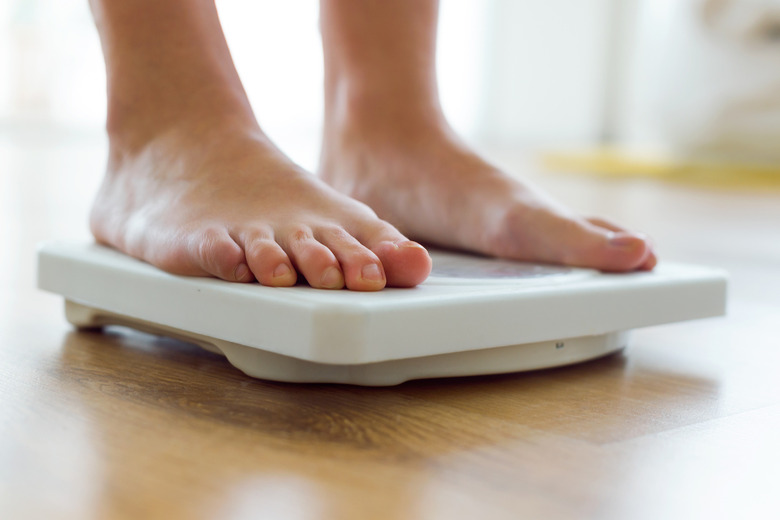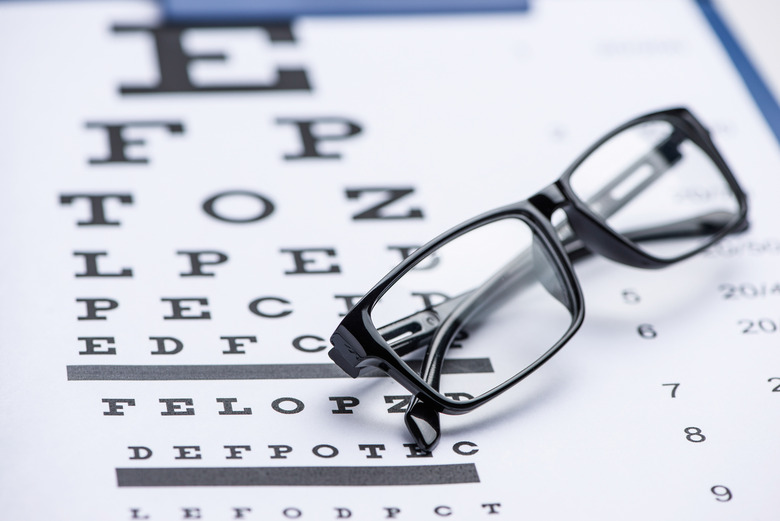35 Symptoms You Shouldn't Ignore Gallery
It can be hard to tell when a symptom is benign and when it's cause for alarm. Take a cough, for instance. Where's the line between just waiting out the cold and consulting your doctor to treat your bronchitis?
Your body is communicating with you day in and day out, sending all kinds of messages to you with various sensations and feelings. It's up to you to interpret these signals and make a change. When you're hungry, for instance, you know it's a good time to eat. When you're cold, you know to grab a blanket.
But what about the other symptoms — the ones that aren't so clear? Some people just ignore every sign and symptom and avoid going to the doctor like it's the plague. In the long run, that's not such a great idea for your health. You want to keep your doctor aware of your symptoms and medical history, just in case something ever happens and you need medical care.
Plus, these symptoms are commonly ignored and could leave serious conditions undiagnosed. If you experience any of these 35 symptoms, don't ignore them — talk to your doctor.
Always Cold
Are you always cold, regardless of the outside temperature? There could be something causing your chilliness from the inside. An underactive thyroid could be to blame for your inability to warm up. Other causes could be a hormonal imbalance or calorie deficit — not eating enough messes with your body's natural ability to stay warm. There's a reason we crave dense foods in the winter!
Bloating
In most cases, bloating is totally normal. In some cases it could even be a good sign. But it can also communicate something unbalanced about your diet. Do you eat excess amounts of sodium? Do you often eat a certain food that doesn't sit well with your stomach? Pay attention to these signs, but remember — a little bloating is just a little bloating. It'll pass.
If your bloating is extreme, however, or if it persists without any signs of deflating, it could be cause for concern. Some cancers, such as those of the stomach and colon, can cause bloating.
Blood in Urine
There are a couple of concerning causes of this particular symptom. Blood in your urine accompanied by pain in your lower back could mean you have kidney stones. Otherwise, it could indicate a bladder infection, a kidney infection, or even cancer.
Bruising Often
If you can remember where you got your bruise, you're probably OK. But if you keep finding contusions on your body and don't recall why, it's time to seek medical attention. Some medications can cause easy bruising, as well. But it's also an early sign of certain diseases and cancers.
Chest Pain
There are all kinds of reasons you might experience chest pain, some of which are benign and some of which are serious. You could be having a heart attack — or, you know, experiencing a temporary bout of acid reflux. Either way, checking with your doctor is a safe bet. If you are struggling with heartburn, avoiding these foods that cause the symptom might be a good idea.
Confusion
Sudden disorientation or confusion is nothing to laugh off — for some, the symptom can be so severe that they need to call a friend for help. This is often a symptom of something more serious going on than a slight brain lapse. You could be suffering a concussion, severe dehydration, low blood sugar, or the onset of dementia or Alzheimer's. These foods can help reduce your risk of Alzheimer's, so if you are concerned about your brain health you might consider adding them to your diet.
Constant Thirst
If you just ate something spicy or had a really tough workout earlier, you're likely going to feel abnormally thirsty. Just drink a little extra water, get some electrolytes, and you'll be fine. But if it seems like you can't stop feeling thirsty no matter how much water you drink, something else could be causing it. Excessive thirst and urination is typical of diabetes, as well as other conditions such as kidney failure. There could be something interfering with your body's ability to absorb water — in this one extreme case, one man has to drink over 5 gallons of water every day! That's even more extreme than Tom Brady's hydration regimen.
Constipation
One of the reasons the keto diet sounds like a really bad idea? It could make you really constipated. Your body needs fiber from foods that the keto diet cuts out, such as grains, fruit, and carbohydrate-rich vegetables, to keep things moving smoothly. Constipation is most likely a sign you need more fiber in your diet. It could also be a sign you're not eating enough food — constipation is one of the most common side effects of a low-calorie diet. On a more severe level, constipation could signal colon cancer, a bowel obstruction, or something else serious.
Difficulty Breathing
Severe difficulty breathing is surely a cause for alarm. But even a little wheezing or struggle with your breath should be taken seriously. You could be experiencing asthma or severe allergies. These foods can help with allergies and there are treatments available for asthma. Even more concerning are the more dire possibilities, such as lung cancer or chronic obstructive pulmonary disease.
Difficulty Swallowing
This can easily be a symptom of a sore throat from a cold. You should still probably check with your doctor that you don't have strep or another infection — but assuming you're otherwise healthy, it's not that huge of a deal. However, if you experience this symptom without any others, you should take it more seriously. This could indicate throat or esophageal cancer.
Disrupted Sleep Patterns
A little irregularity of your sleep schedule is nothing to fuss about. If you're having trouble getting enough sleep, it might just be time to switch up your bedtime routine. Sleep deprivation in general can cause a whole bunch of other uncomfortable symptoms. But if you're usually a sound sleeper and have started waking up periodically through the night, something else, such as sleep apnea, could be causing the disruption.
Dizzy Spells
Frequent dizzy spells can be really uncomfortable; they're also usually a sign that something else is wrong. It could be indicative of something simple, like hunger or shortness of breath. But it could also be a sign of something like an ear infection, poor circulation, or an iron deficiency. In extreme cases, dizziness might signal a neurological disorder.
Dry Eyes
If you work a desk job, there's no question as to what's causing your dry eyes — it's your incessant screen time. But if you have spent a good amount of time away from technology and they're still itchy and painful, consulting a doctor could be wise. Dry eyes could happen from drinking too much, hyperthyroidism, or an autoimmune disease. Try laying off the booze first. But if the condition is severe and persists no matter what you do to prevent it, depending on what other symptoms you have it could be linked to a real medical problem. Dry eyes are a symptom of diabetes, rheumatoid arthritis, lupus, and some thyroid disorders.
Dry Skin
Dry skin is common, especially during the winter season, but it doesn't come out of nowhere. There are ways to fight dry skin at home pretty easily. But your dry skin is your body's way of communicating something to you — maybe you need more water or you are using soap that's too harsh for your skin. Seeing a dermatologist about the issue could help you alleviate it for good.
Excessive Sweating
If it's scorching hot outside or you're playing an intense game of soccer, sweating is welcome and useful. But if you're just sitting at your desk at work or hanging out with friends, you probably aren't as thrilled when sweat strikes. Excessive or unexplained sweating is awkward and often unpleasant; there are a few things that could be to blame. Firstly, you could be suffering from some anxiety. These common habits could be making your anxiety worse, but quitting them might not solve your problem, either. Talk to your doctor about ways to treat your anxiety. Perspiration could also be caused by hormonal imbalances or a thyroid disorder.
Fainting
Fainting usually isn't cause for much concern, but in some cases it could be a sign of a larger problem. You could have a severely low blood pressure, low blood sugar, or dehydration. In some cases, fainting could signal the onset of a seizure.
Fatigue
We're talking all out, can't-lift-my-arms-or-my-eyelids fatigue. Not just the fact that you're always a little tired — that's probably due to one of these less clinical reasons. Fatigue can be a symptom of anything from a vitamin deficiency to malignant cancer; if you're concerned, talk to your doctor.
Fever
No matter what, a fever is a good reason to visit your doctor. Fevers are usually indicative of an infection, which you definitely want to get taken care of quickly. It could be benign and require no medical attention — or it could be something like meningitis or even cancer.
Headaches
There are so many potential causes of headaches that it's impossible to confirm what exactly your headache means without looking at other factors. Lots of commonplace scenarios, such as dehydration or a lack of sleep, can cause a headache. However, headaches are definitely something to keep an eye on; conditions such as tumors, shingles, or serious infections could be happening.
Heartburn
Heartburn usually happens due to something relatively benign, like eating too quickly or eating too much of a food that's likely to cause it. But other times, severe pain in the chest that feels like heartburn is a signal for something else. Costochondritis, or the inflammation of the cartilage connecting your ribs to your breastbone, could be causing the pain. If the heartburn-like feeling is severe, it could even be a pulmonary embolism. Of course, these severe conditions are highly unlikely if you're experiencing pain that feels like acid reflux. But it's a good idea to pay attention, regardless. You probably just need to lay off the hot sauce.
Lump in Your Throat
You know the feeling you get when you're getting choked up? The lump in your throat you feel when you're getting emotional is normal and not a big deal. But if that feeling arises when you're cool, calm, and collected? You might want to get it checked out. Thyroid, esophageal, and throat cancers can all cause this feeling.
Memory Loss
Everyone forgets things sometimes! Cut yourself some slack. But if you've been noticing yourself becoming increasingly forgetful — especially if it's to the point where others start to notice — you might want to ask your doctor what's going on. This seemingly benign forgetfulness could be an early symptom of Alzheimer's or dementia.
Muscle Cramps
If you're experiencing painful and frequent muscle cramping, electrolyte imbalance could be to blame. Hydrating consistently can help. This is the same reason why exercise causes cramping for some people. After losing all that water to sweat, rehydrating is essential.
Night Sweats
If you're waking up from a horrifying dream or just don't have air conditioning in your home, sweating at night might not be signaling anything serious. Sounds like you just need to make a few alterations to your sleep habits to prevent it. But if you're waking up drenched every single morning when your room is an average temperature, this is cause for some alarm. It could be anything from menopause to hypothyroidism; regardless of what the issue is, talk to a medical professional.
Numb or Tingling Hands and Feet
You know that feeling like your hands or feet are falling asleep? That's totally normal — it's just caused by something disrupting your circulation. But if it's happening consistently or your limb goes completely numb, talk to your doctor. You could have a real problem with your blood vessels or — in the case of extreme numbness — something wrong with your brain or nerves.
Persistent Cough
A nagging cough might seem benign, but it's nothing to ignore. Lung and thyroid cancers can both cause incessant coughing, as can other serious conditions such as asthma, bronchitis, and gastroesophageal reflux disease. Yes, problems in your gut can cause a cough!
Puffy Face
A little puffiness in the face can happen easily, especially in the days after eating lots of sodium or consuming lots of alcohol. It's simply a visual consequence of your body retaining more water. However, if the swelling is more pronounced than usual or persists over a long period of time, it's a good idea to talk to a doctor. Tumors sometimes restrict blood flow, resulting in blood pooling in the face.
Shortness of Breath
If you've just climbed four flights of stairs, a little wheezing is probably no big deal. But if it arises out of nowhere, or significantly impairs your ability to function, it may be cause for alarm. Shortness of breath, also called dyspnea, could be your first warning sign of a stroke, heart attack, or blood clot. It could also be a symptom of asthma or a lung infection, both of which require significant medical care.
Stomach Pain
Before you wrack your brain for other causes, think: What did you eat today? If it was something unusual, extra fibrous, or with lots of fat, that could be the reason you're experiencing some indigestion. But if the pain is severe and doesn't feel like a simple stomachache, something might be up. Severe stomach pain could be a sign of an aortic aneurysm or gallstones. Visit your doctor as soon as you can.
Swollen Legs
You might be wondering how you're supposed to tell if your legs are swelling. You'll probably start seeing lines on your feet and ankles where your shoes are straining the skin; additionally, the swelling may be uncomfortable or physically noticeable. Leg swelling occurs when blood accumulates in the legs. This could happen because of a blood clot, thyroid problem, vein problem, or even heart failure. When you notice it, visit your doctor immediately — especially if you've had a heart attack in the past.
Swollen Lymph Nodes
Lymph nodes can swell from the simple cause of a cold or other passing illness — not a reason to freak out. But many cancers are actually diagnosed when people go to the doctor for a swollen lymph node. They can swell as a result of cancers or other maladies. It can't hurt to take yourself to the doctor and ask what's going on.
Unexplained Weight Gain
If the weight gain is slight, as in under or around 10 pounds, it's probably just the normal fluctuation of your body doing its thing. But if it's rapid, don't go on a diet. Go see your doctor. It could be symptomatic of hormonal changes, kidney disease, or a side effect of medication.
Unexplained Weight Loss
You might think weight loss is always a good thing, but if you've been at a stable weight for a long period of time and suddenly drop pounds, it could signal something serious. Certain types of cancer can cause weight loss, as can thyroid changes, diabetes, and other conditions.
Vision Changes
As you age, your eyesight might worsen. If this happens, simply visit your optometrist. But if you're going about your day and suddenly see flashes of light or concerning color changes, visit your doctor as soon as you can. Brain and optic nerve tumors can cause sudden vision changes, as can a few other conditions.
Weakness
If you had a tough workout or haven't eaten in a while, muscle weakness can happen and the solutions are quite simple: rest more and eat more. But unexplained or extreme weakness is concerning. If the weakness is primarily focused on one side of your body, it could be a stroke — call 911. If the weakness is ongoing and less localized, problems with your nervous system or brain communication could be developing. It could also just mean you need more vitamin D — as can these other symptoms.
More from The Daily Meal:
What Your Body Is Trying to Tell You With These 20 Symptoms
Unexpected Signs of an Unhealthy Heart
Surprising Signs You Need More Vitamin D
8 Common Nutrient Deficiencies and Surprising Signs That You're Affected
15 Telltale Signs You Might Have Cancer



































